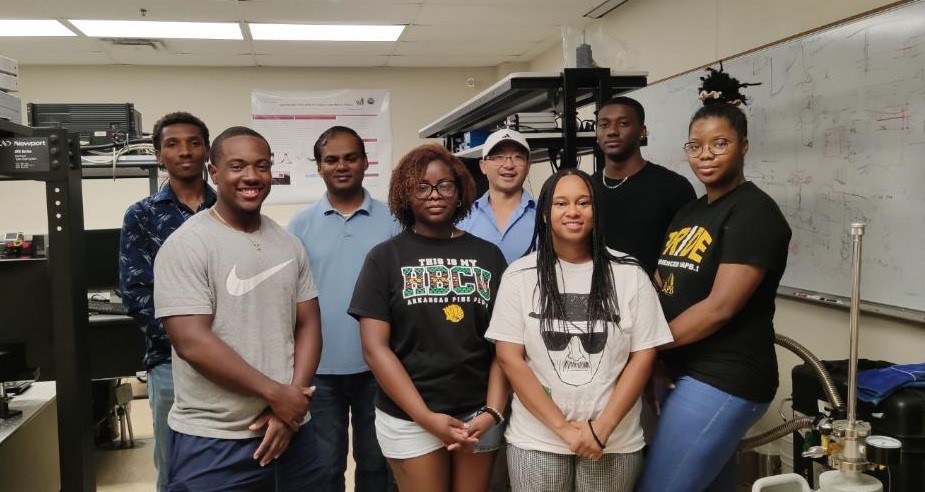From the Newsroom of the University of Arkansas at Pine Bluff
Research and Innovation at the University of Arkansas Pine Bluff (UAPB) is one of nine consortia partnerships that the U.S. Department of Energy’s (DOE) National Nuclear Security Administration’s (NNSA) Minority Serving Institutions Partnership Programs (MSIPP) awarded grants totaling $40.9 million to Minority-Serving Institutions (MSIs). The program leverages untapped potential in students and expands the DOE-NNSA talent pathway. The program encompasses 56 schools, including five HBCUs and 14 DOE-NNSA laboratories, sites, and plants.
UAPB is one of three universities in the Consortium on Sensing, Energy-efficient Electronics and Photonics with 2D Materials and Integrated Systems for Training the Next-Generation DOE-NNSA STEM Workforce (SEEP-IT), which is one of the nine consortia. UAPB researchers join the University of North Texas (UNT) College of Engineering and the University of Texas at Arlington (UTA) in partnership with Sandia National Laboratories and Argonne National Laboratory to further the science and applications of emerging semiconducting materials toward electronic, photonic, and sensing technologies.
The SEEP-IT technologies will help advance the national security capabilities while also growing the number of minority graduates and post-doctoral students through a strong collaborative network with researchers and DOE facilities, increasing the number of students hired into the Nuclear Security Enterprise workforce, according to energy.gov/nnsa.
SEEP-IT will receive $1 million yearly for five years, a total of $5 million. Mansour Mortazavi, UAPB Vice Chancellor of Research and Innovation with expertise in optics and laser science and technology, represents UAPB as one of three universities in the SEEP-IT consortium along with UNT PACCAR Professor of Engineering Anupama Kaul, principal investigator of SEEP-IT, co-principal investigator Yuankun Lin, UNT Professor of Physics. Lin conducts research in laser optics and photonic crystals and has mentored many students from underrepresented groups who are now working in leading defense firms. Others include co-principal investigator Pamela Padilla, UNT Vice President for Research and Innovation, and Weidong Zhou, a Distinguished University Professor in electrical engineering at the UTA with expertise in photonics and optoelectronics. In addition, the partnerships with the Argonne and Sandia National Labs under the DOE have their own funding, making the total funding for SEEP-IT $7.45 million.
Other HBCUs in the consortia include Alabama A&M University, Fisk University, North Carolina A&T State University, and Prairie View A&M University. Click here to learn more about the Minority Serving Institution Partnership Program’s nine consortia.

